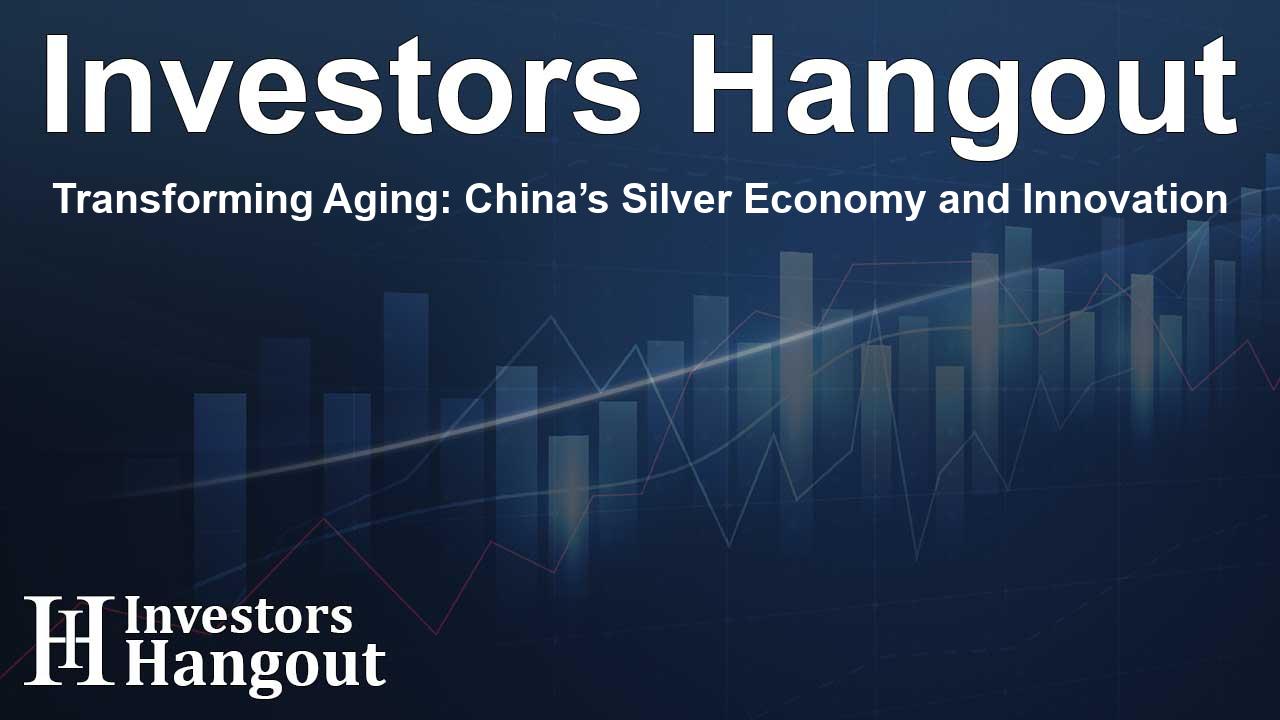Transforming Aging: China’s Silver Economy and Innovation

Understanding China’s Silver Economy
China's silver economy is a transformative force, reshaping how aging populations are perceived and integrated into society. By recognizing the value of its aging citizens, China is providing a blueprint for how nations can utilize demographic shifts as opportunities for innovation and growth, paving the way for a new era of shared prosperity.
The Economic Impact of Aging
The aging population in China is significant, with over 310 million individuals aged 60 and older. This demographic, making up 22 percent of the population, drives a substantial segment of the economy. Estimates suggest that by a certain year, the silver economy could reach 19.1 trillion yuan, representing 28 percent of overall consumption. Rather than viewing this as a challenge, Chinese society is embracing it as a catalyst for growth, leading to new industries and cooperation.
Redefining Consumption Patterns
Whereas previous generations approached spending from a survival perspective, the new elderly demographic seeks enhancement and engagement through their purchases. They are engaging with healthcare services, wellness products, and leisure activities, stimulating diverse market opportunities that cater to their evolving needs and aspirations.
Technological Innovations
Technological developments are reshaping the silver economy, with innovations such as eldercare robots becoming commonplace in various environments. These robots perform functions ranging from meal delivery to companionship, enhancing daily living for seniors. China has even established international standards for eldercare technologies, highlighting its leadership in globally relevant innovations.
Fostering Dignity and Comfort
It's not just technology that's making a difference. Developments in transportation and healthcare are ensuring that aging citizens maintain their dignity and comfort. Specially designed trains for seniors enhance travel experiences, allowing them to participate in cultural activities while traveling. This commitment to comfort and dignity signifies a shift in societal attitudes toward aging.
Internally and Externally Fostering Growth
As older citizens invest in premium wellness products, nutritional services, and educational opportunities, they are fostering an economy that transcends borders. The silver economy's growth is creating new avenues for international collaboration in trade, health technologies, and eldercare, benefiting both China and its global partners.
Job Creation through the Silver Economy
The rise of China’s silver economy is projected to create a substantial number of jobs, potentially reaching 100 million by a certain year. These roles will span various sectors from high-tech manufacturing to hospitality and healthcare, indicating a robust response to the challenges posed by an older demographic.
Building Social Cohesion
Investment in the welfare of seniors enhances social harmony. This strategy helps establish a sense of trust and community within society, promoting the values of solidarity and shared responsibility. Instead of being viewed through the lens of crisis management, aging is seen as an opportunity to reaffirm commitments to social welfare.
International Cooperation in Aging
China's proactive engagement with other nations in areas like healthcare and eldercare creates a platform for mutual learning and collaboration. Countries worldwide can take notes from China's strategies, adapting them to their unique contexts while contributing insights that benefit the broader global community.
Conclusion: The Future of the Silver Economy
China’s approach to its silver economy signifies that aging is a natural phase of life that can drive innovation rather than inhibit it. This outlook integrates technological advancements with cultural respect and shared humanitarian values. As the silver economy flourishes, China not only adapts to demographic changes but leads a global conversation on turning these challenges into opportunities for collective growth and well-being.
Frequently Asked Questions
What is the silver economy in China?
The silver economy refers to economic activities associated with the aging population, highlighting how societies can benefit from employing innovations and services tailored for older citizens.
How significant is the aging population in China?
Over 310 million people aged 60 and above make up 22 percent of China's total population, creating considerable economic demand across various sectors.
How are technological advancements impacting the silver economy in China?
Technological innovations, like eldercare robots, play a vital role in enhancing the quality of life for seniors by automating care and providing companionship.
What are the social implications of the silver economy?
Investment in senior welfare fosters social cohesion, reinforcing values of respect and shared responsibility within society.
What are the future prospects for jobs in the silver economy?
The silver economy is expected to create around 100 million jobs across diverse industries, supporting economic growth and workforce development in the coming years.
About The Author
Contact Thomas Cooper privately here. Or send an email with ATTN: Thomas Cooper as the subject to contact@investorshangout.com.
About Investors Hangout
Investors Hangout is a leading online stock forum for financial discussion and learning, offering a wide range of free tools and resources. It draws in traders of all levels, who exchange market knowledge, investigate trading tactics, and keep an eye on industry developments in real time. Featuring financial articles, stock message boards, quotes, charts, company profiles, and live news updates. Through cooperative learning and a wealth of informational resources, it helps users from novices creating their first portfolios to experts honing their techniques. Join Investors Hangout today: https://investorshangout.com/
The content of this article is based on factual, publicly available information and does not represent legal, financial, or investment advice. Investors Hangout does not offer financial advice, and the author is not a licensed financial advisor. Consult a qualified advisor before making any financial or investment decisions based on this article. This article should not be considered advice to purchase, sell, or hold any securities or other investments. If any of the material provided here is inaccurate, please contact us for corrections.
